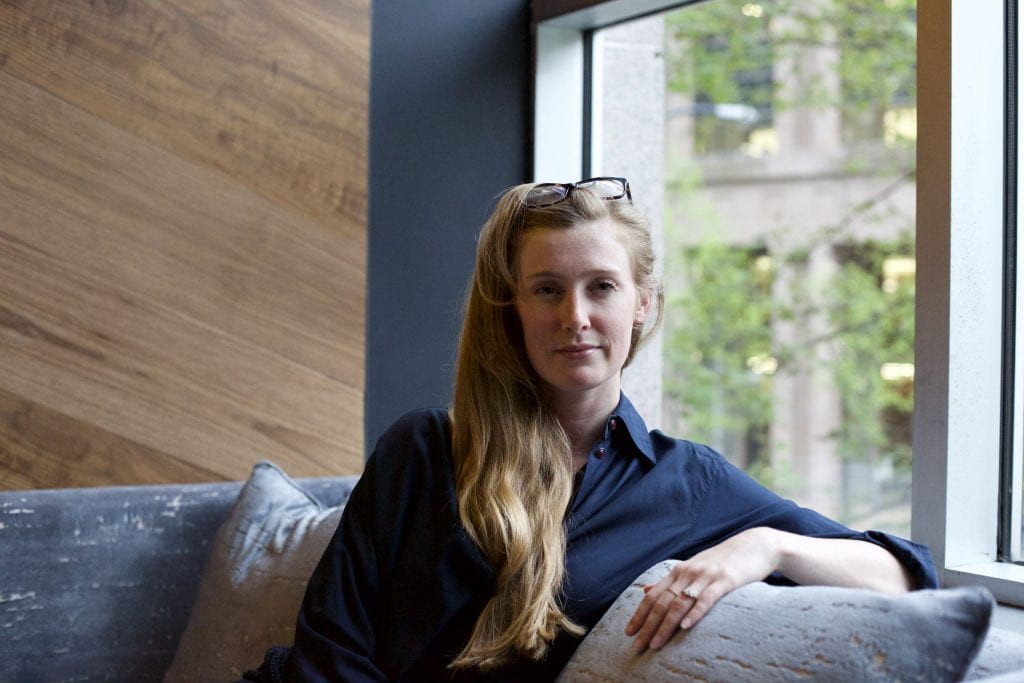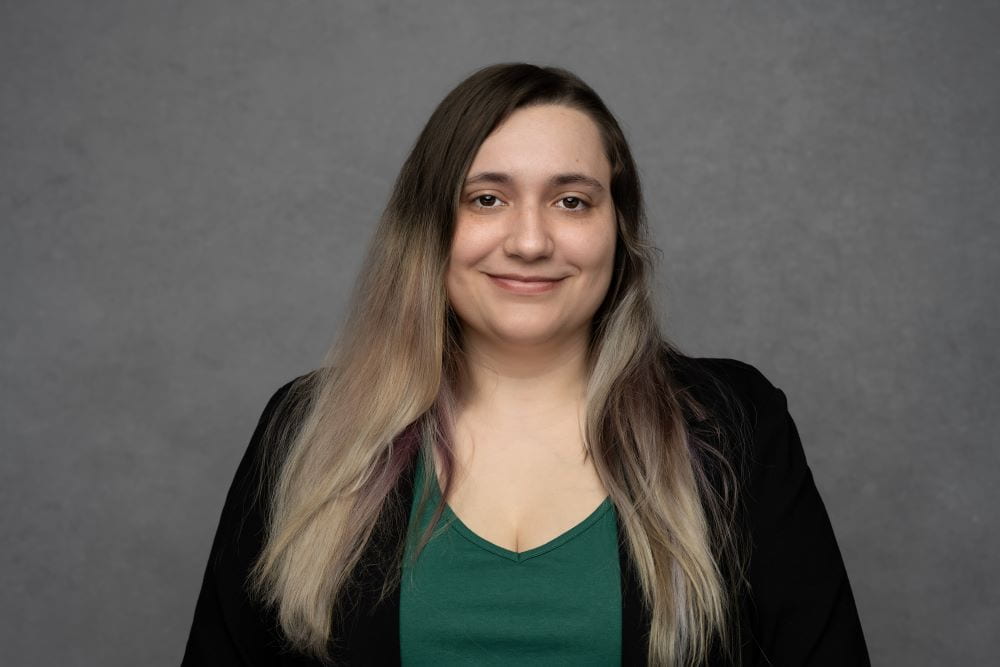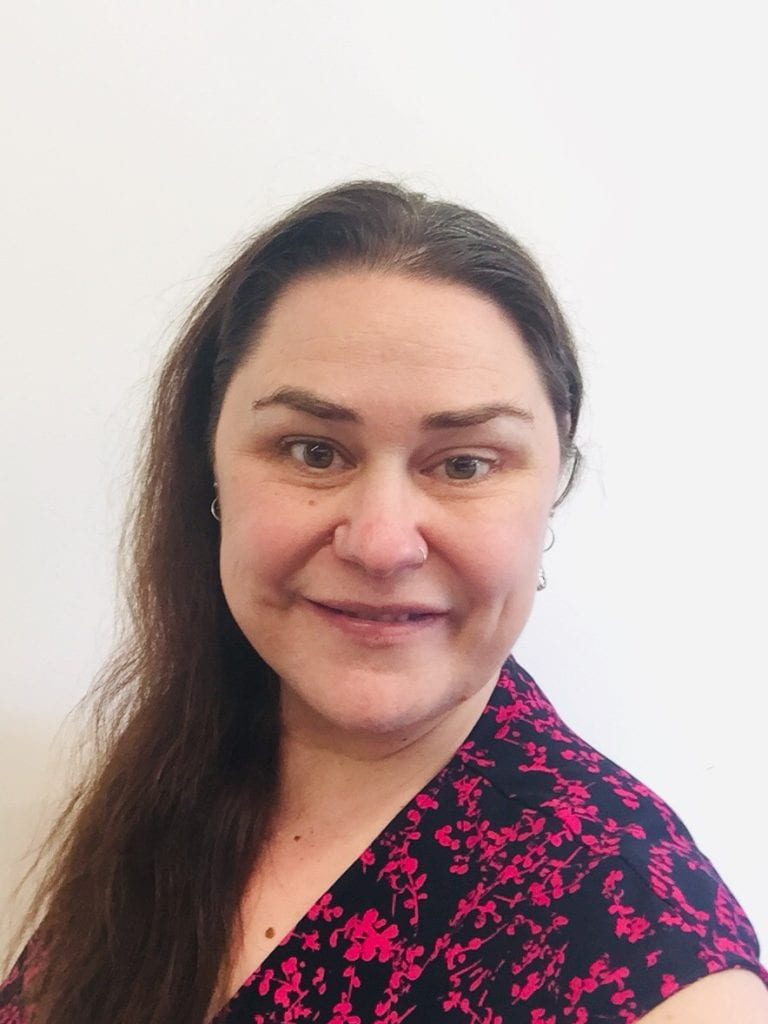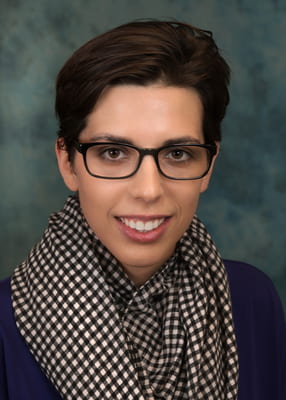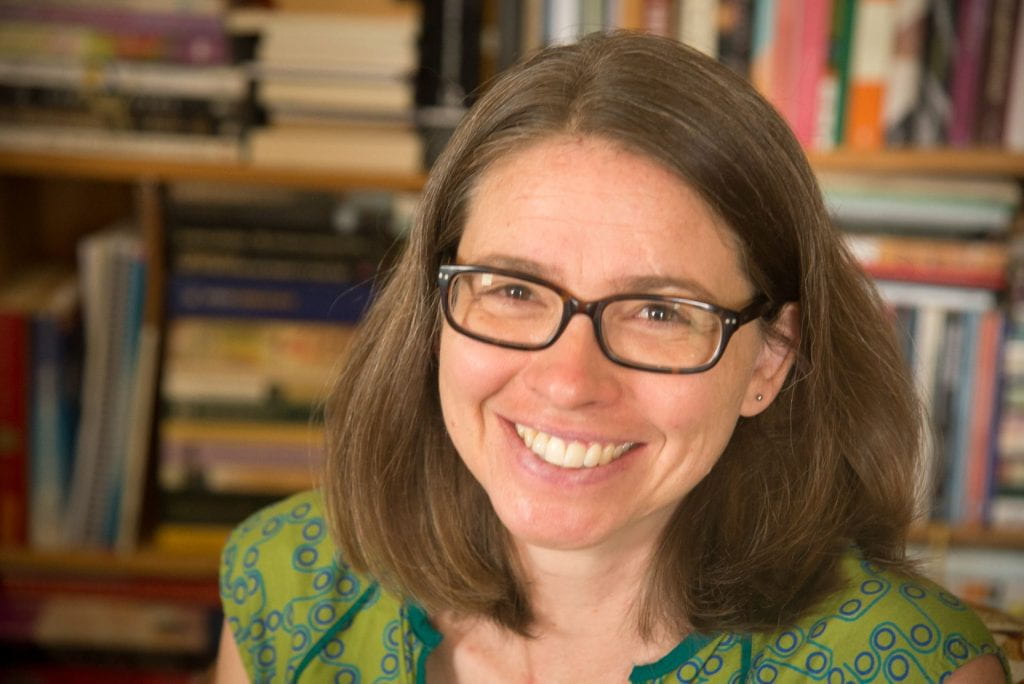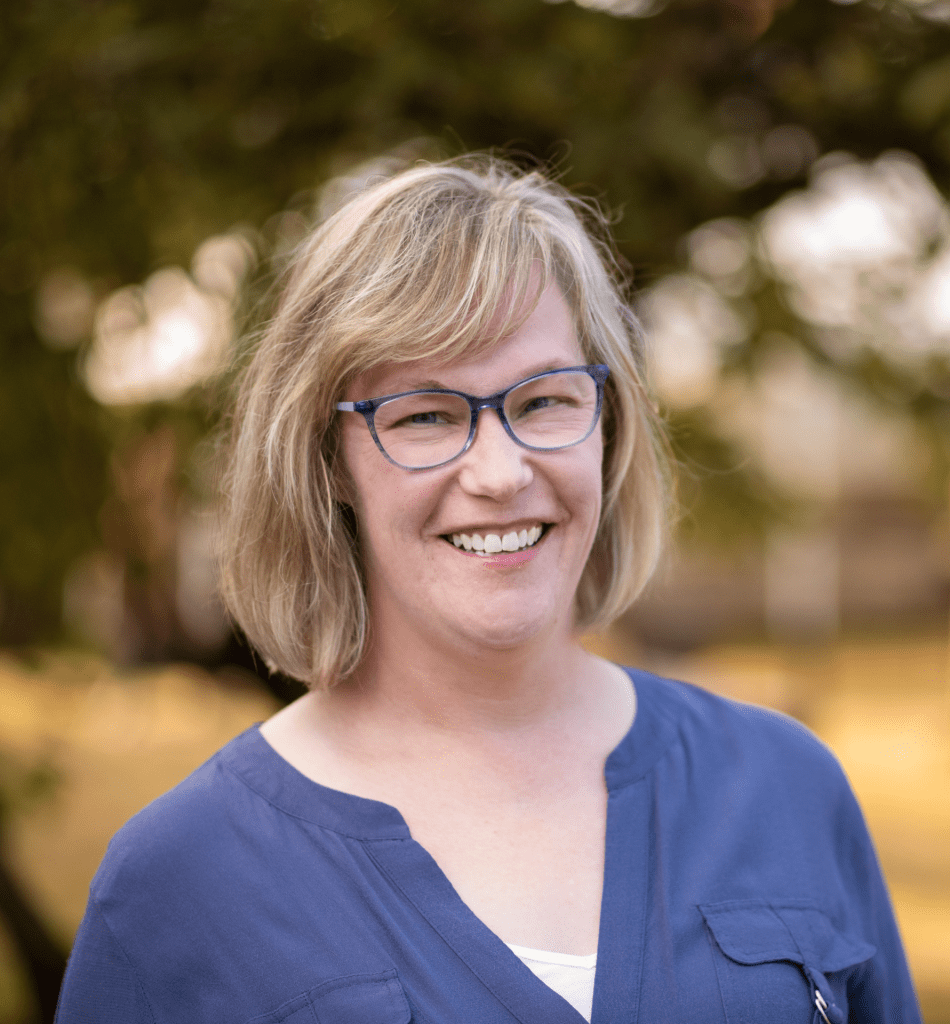Tia Gracey is Associate Editor for Political Science Today at the American Political Science Association (APSA). An outstanding graduate of GW’s Master of Professional Studies in Publishing program (December 2023), she served valiantly as Managing Editor of our GW Journal of Ethics in Publishing, shepherding the second and third issue of the journal to publication. We are blessed with an abundance of talented students in the Graduate Program in Publishing at George Washington University, and we are especially pleased to share the insights of one of our stellar graduates in this alumni profile.
What was the most challenging aspect of the MPS in Publishing program? What was the most rewarding?
This might seem contradictory, but I think the most challenging aspect of the program was the most rewarding to me. There is so much to be involved with in the Publishing program, and it is something I definitely tried to take advantage of, so trying to find a balance between doing all that I could in the program—classes, the book club, the journal—and my own capabilities was challenging.

During your time in the program, you have been instrumental in advancing the GW Journal of Ethics in Publishing, first as the E-Publishing Committee lead, and then as the journal’s Managing Editor. What led you to become involved in the journal, and especially, what led you to pursue the opportunity as Managing Editor? How has this experience had an impact on you?
I was first able to get involved with the journal simply by paying attention to the emails that [Program Director] John Warren sends out. Though they may be lengthy sometimes, there is so much information hidden within them that is vital for students. John had sent one out at the beginning of the Fall 2023 semester, and after being two semesters deep in the program, I felt that I finally had my feet under me. It was a new opportunity for me that would also help me gain the practical experience that I was missing. People who know me know that I put my all into everything once I set my mind on something, so I went into being the E-Publishing Committee Lead with a lot of ambition. I was constantly reaching out to Lois Jones, the Editor-in-Chief for the journal, about what more I could do or if there was anything else I could help with. This ambition was what helped me become a candidate for Managing Editor. I knew that quite a few of the leads were leaving the journal because their time in the program was up, and I had fully expected to just continue as E-Publishing Committee Lead. Imagine my surprise when Lois had reached out asking if I wanted to be Managing Editor. It didn’t take me much deliberation to decide that it was an opportunity I would be ecstatic to take. I’m still so honored to this day that Lois thought of me, because I was finally able to discover the path I wish to take in my publishing career.
Your dedication to the GW Journal of Ethics in Publishing has been inspiring. You led or helped lead efforts to publish two issues within a year, a much faster pace of what we had accomplished previously. I loved how you even thought to create charms for GWJEP for graduation! What advice do you have for new students who might consider getting involved in the journal?

For any new students that are considering joining a GWJEP committee, I would simply say do it if you can. The journal runs on the students’ ambitions and efforts. Without it, no issues would ever be published. If you wish to learn practical publishing skills and can manage your time well enough to gift some to the journal, then I would say put your best foot forward and go for it!
I would also say to keep an open mind. Many students go into the journal wishing to be on the Editorial Committee, and I can completely understand why they do. The Editorial Committee, however, is not the only committee that makes the journal run. If you have your heart set on one committee, though, make sure to let the Editor-in-Chief and the Managing Editor know so they can do their best to fit you in there.
In your second year of the program, you were hired at the American Political Science Association (APSA) as Associate Editor. What are some of the skills and experience you learned in the MPS in Publishing program that you have been able to apply to your job at APSA
Quite a lot of my skills I’ve learned from the classes in the program, particularly E-Publishing Tools, which taught me Adobe InDesign, and Book Design, which taught me about printing needs and requirements. My past jobs have helped me learn website management, and the rest of my job is very administrative. Another big reason that I was able to get hired was because of my role as E-Publishing Committee Lead for the GW journal. If I not been committee lead or included that role in my resume, I’m not sure that I would have gotten as far as I have. I owe my current role to both the program and the journal.
“For any new students that are considering joining a GWJEP committee, I would simply say do it if you can. The journal runs on the students’ ambitions and efforts.”
What advice would you give to new or prospective students to the MPS in Publishing program?

I would recommend that students pay attention to the opportunities they are given. Sometimes they might be hard to see, but pay attention to the emails and your classes. Attend the Publishing CareerBuilders, go to information sessions, meet as many people as you can. You have the opportunity to submit the papers from your capstone to the journal, which would get you published. You can be a part of the journal, a part of the book club and make quite a lot of connections there, you can also find some opportunities from the Society of Scholarly Publishing. Once you start looking for these kinds of opportunities, so many will start popping up around you. Just make sure you have the bandwidth to be able to handle them.
Prior to your Publishing degree, you completed a Master in Liberal Arts at McDaniel College. What are some of the reasons you decided to pursue the MPS in Publishing degree? Why did you choose GW’s program specifically?
Even during the MLA program at McDaniel, I knew that I wanted to get another degree, I just wasn’t sure in what. I have always loved books and writing, all the way back to elementary school. Originally, I thought that I wanted to be an author because I loved writing and the art that I was able to create. I quickly figured out this wasn’t the case while I was writing my thesis for the completion of my degree. While I love writing, and I think I always will, I discovered that I would rather help other people create beautiful works of art rather than forcing myself to do it. It was exhausting. I would rather enjoy writing when I want to instead of forcing myself to do it as a career.
“I would recommend that students pay attention to the opportunities they are given… Attend the Publishing CareerBuilders, go to information sessions, meet as many people as you can. You have the opportunity to submit the papers from your capstone to the journal, which would get you published. You can be a part of the journal, a part of the book club and make quite a lot of connections there, you can also find some opportunities from the Society of Scholarly Publishing.”
What course or what professor made the biggest impact on you during your time at GW?
Tony Julien is to whom I accredit quite a lot of my successes. Through his classes, E-Publishing Tools and E-Publishing Technologies, I have not only learned how to use 2 different Adobe Programs, but I also have more confidence in exploring Adobe programs in general. He influenced me to apply to be a part of the E-Publishing committee, even though I didn’t have any background or knowledge. His willingness to help students learn put me at ease and helped tremendously when I was doubting myself during his classes. My journey through the journal and into the publishing field was directly impacted by his teachings and the energy he puts into teaching. Though difficult, his classes were worth it, and I learned invaluable skills from him during my time in the program.
What have you found to be the value of the MPS in Publishing degree, and how are you using what you learned, as a rising publishing professional?
I remember towards the beginning of my time in the program, I had attended a few Publishing CareerBuilders and one thing that I constantly heard from publishing professionals was that “It wasn’t what you did, it was who you know.” At that time, I didn’t fully understand. Did that mean that my accomplishments and efforts didn’t mean as much? Would I only be able to break through by getting my name out there? How do I get my name out there if I can’t break through? Since getting my foot through the publishing industry door, I can honestly say that one of the biggest pieces of value of the MPS program is who you know. The publishing industry is a lot smaller than you think it is. By taking advantage of the opportunities that the program offers, I was able to start making more connections one by one, and not just connections with my fellow students. All the professors are publishing professionals, the publishing book club members are not just limited to GW students, and authors outside of GW submit to the journal as well. There are plenty of opportunities that GW provides to meet and learn from people outside of GW that, once I started taking advantage of these opportunities, I was finally able to make some headway in forging my path through the publishing industry.
“Although it may be tiring at times, and life can get in the way, try and be as active in the community as you can. It will help so much in the long-run and can even be helpful in the short-run.”
For your Ethics in Publishing Capstone project, you researched ethical issues surrounding Chat GPT and publishing, and you presented your research at the 13th GW Ethics in Publishing Conference. What was it like to present at this conference, and do you plan to continue your research in this area, perhaps as a journal article?
This was my first time ever presenting at a conference. I won’t lie, I was nervous, and it was a little nerve-wracking. Publishing professionals from all over the world were going to attend this conference. What right did I have to present my purely theoretical capstone in front of 500+ people when I hadn’t even broken into the publishing world yet? [Ethics in Publishing professor] Randy Townsend always encourages his students to submit to the journal and to present at the Ethics in Publishing Conference, and since I had chosen to do a presentation and not a paper, it would have made sense for me to present at the conference, but I was doubtful of myself and my own capstone. It wasn’t until Randy had reached out to me to invite me to present with the other students that I realized, if Randy, who is a publishing professional and educator in the ethics of publishing, enjoyed my presentation and wanted me to present my theories, then why should I continue to doubt myself?

When it came time to present my capstone, I was still nervous, but less so with my new-found confidence. For the people who know me, it is obvious that I can talk for hours about something I am passionate about, and that transfers well even over a screen. I just had to remind myself that once I got into my presentation, I would be fine. I simply needed to make it past my introduction, and then I could get into the meat of it. Funnily enough, my family and friends who watched me told me that I forgot to introduce myself. I guess I was just too excited and nervous to wait.
I’m not sure if I want to turn my presentation into a paper, since most of it was theory. It’s also due to the subject, as the ethics of AI and ChatGPT are constantly evolving day to day. I have discussed with Lois Jones, the Editor-in-Chief of the GW journal, the possibility of writing an article on the ethics of mental health illnesses, specifically ones that include vivid hallucinations, and their representation in video game publishing. Now that I am finished with the journal, I might have time to do this!
Can you share some of the articles or publications that you have written or published?
The two issues published by the GW Journal of Ethics in Publishing are ones I am particularly proud of, as I was able to prove to myself that I can lead a team composed of different committees and that striving to be a Managing Editor is the right direction for me. Those two issues can be found here:
GW Journal of Ethics in Publishing, Volume 2 – Issue 1
GW Journal of Ethics in Publishing, Volume 3 – Issue 1
I would also like to include the magazines that I’ve been able to successfully publish at my job as Associate Editor of APSA, where I have successfully printed and electronically published 3 issues of the quarterly membership magazine:
Political Science Today, Volume 3 – Issue 4
Political Science Today, Volume 4 – Issue 1
Political Science Today, Volume 4 – Issue 2
Finally, I would like to include the video and slides for my capstone.
